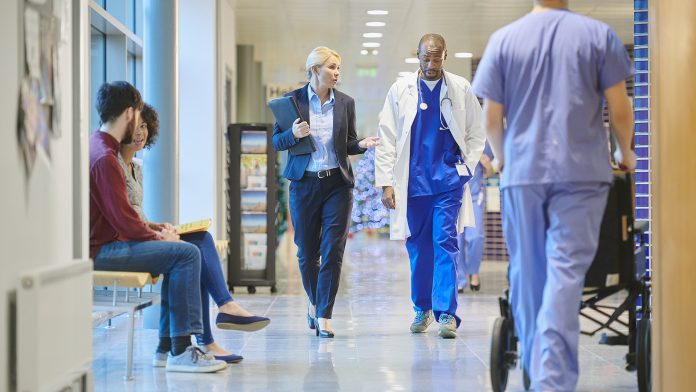
The UK government has revealed that they will be providing £248m NHS funding to reduce patient waiting lists and enhance diagnostics.
The sizeable NHS funding will be financed over the next year, investing in cutting-edge technologies to deliver more diagnostic tests, checks, and scans to ensure that health conditions are accurately and efficiently diagnosed. The government believes the investment will help achieve earlier treatments for patients and reduce patient lists in the wake of the COVID-19 pandemic.
The novel initiative follows the £2.3bn investment announced at the recent spending review, in which the government aims to transform diagnostic services over the next three years with at least 100 community diagnostic centres across England, localising access to millions of people.
How will the NHS funding be utilised?
The NHS funding will be employed to digitalise diagnostics throughout the UK health service, using state-of-the-art technology to refine how tests, images, and results can be shared across computer networks in hospitals, labs, and GP surgeries. This will enable nurses, doctors and other professionals caring for patients to access results more quickly and easily, even when working from a different setting.
The groundbreaking technology will allow imaging specialists – experts who analyse and provide a diagnosis from a scan or x-ray – the ability to review high-resolution images from a remote setting, removing the necessity to be in an imaging lab.
Additionally, the NHS funding will help GPs and other clinicians to identify the most optimal scan for their patient based on their symptoms and medical history, removing unnecessary requests to radiology departments, saving specialists and patients valuable time.
Sajid Javid, the UK Health and Social Care Secretary, said: “Today’s multi-million-pound investment will play a big role in levelling up diagnostics services across the country so patients can get faster results and healthcare professionals can get their job done more easily, reducing unnecessary administrative burden, and making every taxpayer’s pound count.
“Getting a faster diagnosis for a health condition is the first step to getting more people the treatment they need and earlier on, and our funding will help ensure our NHS has access to the latest digital technology to drive up efficiency.”
Professor Stephen Powis, the NHS medical director, commented: “The NHS is facing a winter like no other with rising cases of COVID-19 and flu as well as record demand for emergency services, all while we continue to deliver the biggest vaccination programme in health service history, including rolling out booster jabs for the most vulnerable.
“However, NHS staff are making efficient use of additional funding, and following the recent rollout of new diagnostic centres, the number of patients waiting for a diagnostic test is falling for the first time in a year, meaning more people are getting the checks they need and if required, are able to begin treatment sooner.”
Advancing diagnostics
Diagnostic tests are employed to determine or rule out potential health conditions and diseases, with over 1.5 billion diagnostic tests carried out each year in England alone. These essential technologies are crucial to achieving early diagnosis and screening that can help to save lives, allowing medical professionals to ascertain the most effective treatment strategy for their patients. Significantly advancing these services will be vital to reducing the backlog of cancer services and other treatments that are currently bombarding the NHS.
Of the £248m NHS funding, £100m will be invested in the Diagnostic Imaging Programme to enable remote imaging, image sharing, and a clinical decision tool. £108m will be used to allow staff to share images across an array of networks, and £40m for the Digital Pathology Programme to digitalise pathology services. The innovative diagnostic centres will be open seven days a week and staffed by a multi-disciplinary team of specialists, including nurses and radiographers.










